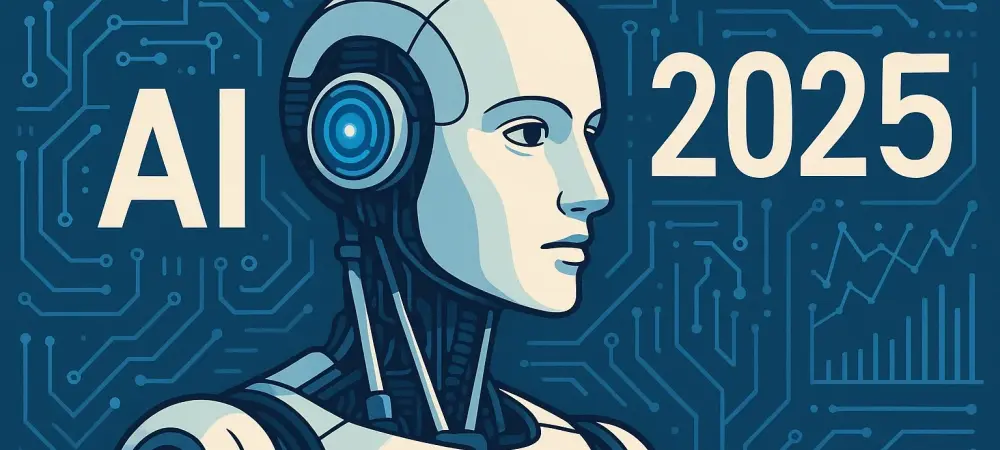Artificial Intelligence (AI) has quickly evolved from being a futuristic concept to an integral part of everyday life, transforming industries and influencing societal norms. These technologies enable machines to simulate human decision-making, offering unprecedented capabilities. As we navigate through 2025, AI’s profound impact on sectors like healthcare, finance, education, and media becomes more evident. These industries are leveraging AI to optimize operations, enhance user experiences, and drive unparalleled innovation. However, alongside these achievements come ethical and regulatory challenges that require careful consideration.
The Transformative Power of AI Across Industries
In healthcare, AI has emerged as a vital tool in diagnosing and predicting diseases, offering tailored treatment options to improve patient outcomes and reduce costs. With AI-driven algorithms, healthcare professionals have the capacity to dissect complex datasets, identify patterns, and offer precise diagnostics and prognostics. This technological leap has enhanced early disease detection and refined patient care strategies. In finance, AI’s ability to analyze vast amounts of data in real-time has revolutionized market predictions, risk assessments, and fraud detection. Financial institutions utilize AI analytics to foresee market trends, streamline operations, and customize client approaches through predictive algorithms and intelligent chatbots. The education sector, too, is no stranger to AI’s influence, with institutions adopting AI-driven tools for personalized learning experiences, adapting content to meet diverse student needs, and optimizing administrative tasks.
The media landscape is experiencing a paradigm shift, with AI leading the charge in content creation. Generative AI tools facilitate the production of articles, music, code, and visual art, allowing publishers to extend reach and refine editorial workflows. Such innovations ensure that content remains engaging, timely, and relevant. While AI tools are increasingly becoming indispensable to media organizations, they pose challenges, particularly concerning intellectual property and content originality. As AI technology further penetrates these industries, it becomes clear that its role is not only to automate but to augment human capabilities. Without a doubt, AI’s transformative power demands diligence and informed oversight from stakeholders across these sectors to maximize its potential without compromising ethical standards.
Navigating Ethical and Regulatory Challenges
As AI introduces groundbreaking changes, the ethical and regulatory aspects present significant hurdles that require attentive navigation. With AI systems capable of performing tasks traditionally executed by humans, fears regarding employment security are intensifying. The automation of routine tasks across various sectors has led to concerns over workforce redundancy, necessitating urgent discourse on collaborative solutions for workers affected by this shift. Addressing algorithmic bias and ensuring that AI systems do not perpetuate social inequalities is another critical aspect of AI’s integration. Bias in AI systems can result in discriminatory practices, underscoring the need for transparent, inclusive algorithm design and rigorous auditing frameworks to mitigate unintended consequences.
Additionally, the rise of deepfakes and AI-generated misinformation poses threats to privacy, public trust, and democratic processes. Without comprehensive regulations, the misuse of AI technology could potentially erode societal values and disrupt public harmony. The lack of clear regulations governing AI’s use and ethical accountability is a critical issue, requiring legislative bodies to step up with definitive guidelines and regulations. Platforms engaging with AI are increasingly incorporating ethical discussions into broader dialogues on political, economic, and social dynamics. While AI offers numerous opportunities, its deployment comes with a responsibility to uphold ethical standards and address potential risks actively. By fostering a culture of responsibility, transparency, and accountability, society can better embrace AI innovations without compromising ethical integrity.
The Imperative of Staying Informed
As AI rapidly becomes a core component of daily existence, revolutionizing industries and influencing societal norms, it does not merely introduce new technologies but fundamentally changes how many sectors function. As we move through 2025, AI’s significant influence on industries such as healthcare, finance, education, and media becomes increasingly apparent. These fields utilize AI to improve operations, enhance user experiences, and foster unparalleled innovation. However, these advancements bring ethical and regulatory issues that demand careful attention. As AI becomes more integrated into our daily lives, its ability to blend seamlessly into routine activities represents a significant yet often overlooked transformation in our living and working environments.

